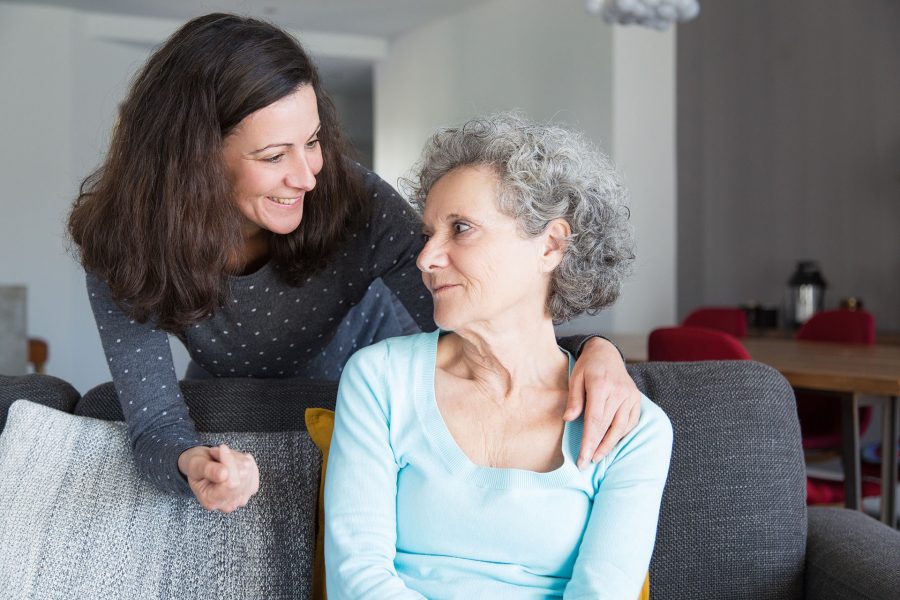Depression Among Seniors
 At any age, depression is insidious. Like a fog, depression creeps across a person’s emotional landscape, obscuring all the joy in its path. The fog can roll in slowly – or it can rush in fast.
At any age, depression is insidious. Like a fog, depression creeps across a person’s emotional landscape, obscuring all the joy in its path. The fog can roll in slowly – or it can rush in fast.
As a society, we’re getting better at understanding, recognizing and addressing depression in our children, our teens, our co-workers, our partners. But somehow it’s still hard – even taboo — to recognize and address depression in an aging parent or grandparent, a widowed neighbor or a retired colleague.
Depressed? No. They’re just getting older.
Why are we so reluctant (or so unwilling or unable?) to recognize and acknowledge depression in older adults? According to the American Psychological Association one in four adults ages 65 and older experiences a mental health problem such as depression, anxiety, schizophrenia and dementia. And people 85 and older have the highest suicide rate of any age group according to National Council on Aging. With more than 2 million Americans over age 65 now struggling with depression, it may be time to ask.
WHY THE SILENCE?
Depression among seniors is widely undiagnosed. In part, that’s because the symptoms of depression are strikingly similar to the everyday challenges of life as an older adult. Do you recognize these patterns in anyone you know?
- Loss of appetite
- Changes in sleep pattern
- Chronic pain
- Social isolation
- Lack of daily purpose
WHAT CAUSES DEPRESSION AMONG SENIORS?
In older adults, some common triggers for depression are the same factors that characterize daily life, including:
- Loss of a loved one
- Loss of independence
- Loss of vision, hearing, mobility, cognitive ability
- Side effects of medication
- Chronic pain
- Diagnosis of other diseases such as Alzheimer’s, Parkinson’s, heart disease, cancer, arthritis
WHAT ARE SOME KEY SIGNS OF DEPRESSION IN OLDER ADULTS?
It’s confounding – and not coincidental — that the key signs of depression among older adults are exactly the same as common characteristics of aging:
- Fatigue
- Trouble sleeping
- Irritability
- Confusion, attention issues
The National Institute on Aging states that depression is a common problem among older adults, but is NOT a normal part of aging.
HOW TO HELP A SENIOR WHO IS DEPRESSED?
If you know an older adult whom you feel is experiencing depression, the National Institute of Mental Health recommends:
- Offering support, understanding, patience, and encouragement
- Helping keep track of his or her appointments and weekly “pillbox” if possible because many older adults with depression may not be thinking clearly
- Trying to make sure he or she has a way of getting to doctor visits
- Talking to him or her, and listening carefully
- Never ignore comments about suicide, and reporting them to his/her therapist or doctor
- Inviting him or her out for walks or outings; engaging in indoor activities with you
- Reminding him or her that, with time and treatment, the depression will lift
RESOURCES
For more resources and information on helping someone you love:
William James Interface Referral Service
(888) 244-6843
https://interface.williamjames.edu/community/lexington
Available 9am-5pm. Phone referral service that connects residents across the lifespan with mental health services. Not for use in crisis situations.
Town of Lexington
Department of Human Services
(781) 296-4843
https://www.lexingtonma.gov/human-services
Available 8:30am – 4:30pm
Connecting residents across the lifespan to resources, programs, and services that promote healthy choices and well being.
The National Mental Health Information Center
(800) 789-2647
www.mentalhealth.org
Information regarding mental health resources for families.
National Suicide Prevention Lifeline
(800) 273-8255
https://suicidepreventionlifeline.org
24/7 free and confidential support for people in distress, offering prevention and crisis management resources.
Advocates Psychiatric Emergency Services
(800) 640-5432
https://www.advocates.org/services/
psychiatric-emergency-services
24/7 Crisis Support for all ages.
Samaritans
Call or Text
(877) 870-4673
https://samaritanshope.org
24/7 Crisis Helpline providing resources for those reaching out with concerns for others.
